Episode 266 - What Happens When the Church and Entrepreneurs Come Together? with Matt Parfitt
One of the core marks of Faith Driven Entrepreneurs is to be active in the local church. But many entrepreneurs struggle to know what that could look like. Unfortunately, the gap between businesses and churches have often felt insurmountable.
But something powerful can happen when these worlds come together.
Matt Parfitt has started and is scaling multiple businesses in the UK in partnership with his church community and has seen God move in incredible ways. He joins us today to talk about the value of this partnership and to share how other entrepreneurs could work alongside their churches for God’s glory and for the good of their communities.
Relevant Links:
https://www.graceenterprises.co.uk/
https://www.faithdrivenentrepreneur.org/church-stories
To connect with Matt directly, learn more about Grace Enterprises and its social enterprises, or discover how you can be involved in the ongoing journey click here: https://linktr.ee/gradients
All opinions expressed on this podcast, including the team and guests, are solely their opinions. Host and guests may maintain positions in the companies and securities discussed. This podcast is for informational purposes only and should not be relied upon as specific advice for any individual or organization.
Episode Transcript
Transcription is done by an AI software. While technology is an incredible tool to automate this process, there will be misspellings and typos that might accompany it. Please keep that in mind as you work through it.
Rusty Rueff: Hey there. And welcome back to the Faith Driven Entrepreneur podcast. Thanks once again for joining us. One of the core marks of faith driven entrepreneurs is to be active in the local church. But many entrepreneurs struggle to know what that could look like. Unfortunately, the gap between businesses and churches have often felt insurmountable. But something powerful can happen when these worlds come together. Matt Parfitt has started and is scaling multiple businesses in the UK in partnership with his church community and has seen God move in incredible ways. He joins us today to talk about the value of this partnership and to share how other entrepreneurs could work alongside their churches for God's glory and for the good of their communities. If you'd like to learn more about how faith driven entrepreneurs can help you partner with your church, visit faithdrivenentrepreneur.org/church. We'll put the link in the show notes, and there will also be a video story of Matt's work with Grace Enterprises premiering very soon. But for now, let's jump into our conversation with Matt Parfitt.
Rusty Rueff: So, William, I was reading the other day that 2000. Yeah, I know, I know. I was reading.
William Norvell: You're. You're already winning. You're already winning.
Rusty Rueff: I am winning because I'm reading. So I was reading that 2023 might end up being the highest air travel mileage in the history of air travel, which is I don't know. I don't know how much you're traveling this year. I mean, we traveled. We've done a bunch it maybe it's revenge travel. I don't know.
William Norvell: I thought you were going to attribute it all to Henry Kaestner.
Rusty Rueff: Well, that's where I was going to go.
William Norvell: A singular spike.
Rusty Rueff: That's where I was going to go. You read my mind, you know, because we're missing our third amigo today because once again, he's on a plane, I think this time to London, right?
William Norvell: I think that's right. That's right. You know, I'm wondering when the budget extends to the other host. I just, you know, I mean, I'm fine in Menlo Park, Rusty. I'm fine. I'm fine. You're fine. London sounds fun.
Rusty Rueff: That sounds pretty good right now. In fact, we're going to we're going to kind of go there today because we were going to welcome in our guest, Matt Parfitt, who is in London and just saw Henry yesterday. Is that right, Matt?
Matt Parfitt: I was in London yesterday, but I'm actually from Nottingham.
Rusty Rueff: Oh, well.
William Norvell: Then you got you got to you know, you got to help his brother. You know.
Matt Parfitt: It's pretty close by relative to where you guys are.
Rusty Rueff: Matt, Remember, we're Americans. Sort of everything looks like just one big thing.
William Norvell: I live in California, now Matt, but I grew up in Alabama. You know, the states, like long way away. And so every time I meet somebody out here and they find out I'm from Alabama, you just see them grasping for the closest thing they can come up with. And typically it's like, I have a friend in Arkansas. Do you know him? Like, I mean, it's three states over, like there's a chance, but it's unlikely. It's actually quite a long distance from where I live.
Matt Parfitt: Yeah, It was great to meet Henry yesterday in London, but yeah, now I'm back home in Nottingham. Say, famous for Robin Hood and not so famous for my sports team. Nottingham Forest.
Rusty Rueff: Uh, well, we welcome your on to the Faith Driven Entrepreneur podcast. It's great to have you. We're going to talk a lot about your background and great experiences that you've had, but we want to jump right into the heart of this episode and what we want to focus on is why do you think the church, from your experiences, should be involved in businesses and be partnering with entrepreneurs? Because this it's a big topic that our entrepreneurs kind of look at between the relationship, between, you know, what they do and the church, and you've got a unique perspective on that. So just jump in and tell us why you think that That's a great idea.
Matt Parfitt: Yeah, I look at what the church used to do, so hundreds of years ago, set in the UK where it was really instrumental when it was relevant in society, it was employing people, it was building schools, it was hospitals, it was clearly was relevant. And now I think most of the population in the UK would say the church is irrelevant. And I've seen it where there is an example of a church we talk about in a minute where they are doing so much more and it is just inspiring to see more than a food parcel. Jesus's promised life and life in all its fullness. And I think that goes beyond doing the relief work that churches typically do. Say that would be just a few to kick us off.
Rusty Rueff: All right. Well, so you come at this because you had a discovery, right, with your own situation. And as we're going to learn here, it revolves around a trip you took to Kenya, of all places, which I'm actually wearing my Maasai warrior [....] that yeah, that I got when I was in Kenya last year. What a phenomenal country. But talk about this discovery that you had and what you saw in a church there and then most importantly, how it inspired you.
Matt Parfitt: Yes, we were over there. I went over there with my wife. It was her medical elective. So we had three months. And towards the end of that time, we went to see a local church there. And it was so inspiring. So I think instead of an area where probably on a map, it would look like it should need loads of aid and relief and money and resources going into it. Actually, it was creating a school with a hospital. It was employing people. It was delivering aid out to the area around it. So it was resources were coming out of it. And I was just hugely inspired by this to see a church that was doing so much more in its community. It was great to see. And so that fired me up when I came back to the UK.
Rusty Rueff: And describe the church for us. Give us a sense of what that kind of looks like, because I think people have never been to Kenya or even if some people who have actually been to other parts of Africa and to Kenya, I've seen different things. So just give us a little description of what it all looked like.
Matt Parfitt: Yeah, it was in a small town, so it was quite a long drive to get there. You can imagine the roads were not great, but we were young and up for the adventure and went there for the weekend. And yeah, there are probably a couple of hundred people there, maybe more. And one of the things that caught the eye was when it came to the offering, people bringing their tide's and offerings like normal, but also people were bringing fruit and vegetables and other produce that they had made or had produced during the week. And so it was great to see a church that was clearly relevant and not just after the money, but it was more the person who was driving us around the taxi driver. He was actually he'd been saved and added and then employed in a taxi firm that was started with the church, that the church had a printing press, a coffee plantation. It built various things in the town, and that was only because the leader was a businessman before he got saved. And then, unlike in the UK, where he probably would then say, right now I'm safe, I will a full time job leading a church. That's not really an option there. So he carried on running his businesses, except they were pouring their profits and resources into the church. So it was amazing to see.
Rusty Rueff: I am like William and pick up on the experience that you had. But you know what that kind of reminds me a little bit of is that, you know, at one time here in the United States, churches were the center right. They were the center of a town, center of a city. And people came from their farms and from their homes into the church. And the church became really the epicenter of a community. And in somewhere along the way, we started to say, well, let's move those churches out. Let's put them in suburbs. And I wonder if, you know, some of that movement has made our churches here in the United States less of the center of community, you know, for serving the community. Like I think what you saw in Kenya. Would that be a true statement for what you saw in Kenya, that the church was the epicenter?
Matt Parfitt: Absolutely. Say, yeah, the center of community life and people were coming to it. It was relevant, whether you believed or not, because they were building the hospital. So everyone was going to be involved there at some point in their life.
William Norvell: Now, it's really interesting that and, you know, as great entrepreneurs do, you know, we often see things out in the world that are working in one sphere and say, hey, here's a sphere where it's not working. Maybe we can bring that kind of concept over to this world. So you tried to do that. You brought it back to your church. You said, Hey, seeing this incredible thing, I think it could work here. How did that conversation go when you got back?
Matt Parfitt: Yeah. When I got back, it was a conversation about there some amazing things and it was more of a I'm not sure that could work over here. And it was a fairly short conversation, but I was sort of stewing on it, brooding over it for a while and thinking. And I was a primary school teacher at this point. So teaching five, six year olds in a rough part of town in Nottingham. But actually I was also involved in discipling some people at church and they'd come to know Jesus their life had changed. But the fact that they'd been in prison, the fact that they'd had all kinds of other issues meant that they were very hard to employ. And what happened was I was getting more and more frustrated because however much time I could spend, whether it was on a Saturday, Sunday, midweek evening home group, it just wasn't enough time. So we had people that needed a job and I was full of a church that was middle class people like me. They were all very well-intentioned and wanted to help, but actually we are not employers couldn't practically help. So that's where I was. And yeah, it led to a Saturday in May 2007, where I was getting really frustrated with God, saying, Look, someone needs to do something about this, and you can probably guess what happened next.
William Norvell: I'm grateful that I don't have to. I, I want to pause. I want to hear that. But also, you said it so quickly. You said a Saturday in 2007. It just harkened back to the Old Testament. And I feel like sometimes I forget to memorialize the times that God has spoken to me, the things that he has done, where I see that beautiful rainbow in the sky at the exact moment. You clearly remember that so vividly. So I want to know what happened next. But I also want to know why do you remember it? So, I mean, 2007, 16 years ago and you referenced a Saturday in 2007. Walk us through that and how you remember that, how you memorialize that in your mind.
Matt Parfitt: Yeah, well, arguably, one of the most significant days of my life, along with getting married, three children. But actually this was the point where....
William Norvell: But I can barely remember that sometimes, you know, let's be honest. So, you know, the very significant moment in my life, too was my marriage. But it was eight years ago, and it's a little iffy sometimes. I know it was in March, but like, sometimes.
Matt Parfitt: Yeah, I mean, this was a very important, significant one in that we were at a Christian conference, social action conference over in Birmingham in England, and actually just that feeling of God has just spoken. I was sitting there with my wife and it was as clear as I was saying, I'm getting frustrated with God. That sense just absolute clarity of God saying, Right, will you do it then? And I, being personality, I am and relatively confident that I are. And. All right I will then and that was it. And I would speak to my wife afterwards about it. But this is Saturday afternoon. On Monday morning, I'm handing in my notice to the head teacher to resign from my career to say it's like he was surprised to say the least, because on Friday afternoon. So we'll have a nice weekend. See you on Monday. Monday morning comes around. I'm handing my notice in. So naturally he asks what's happened and what are you going to do next with the two questions? So after trying to answer about what had happened and trying to relate that to someone that doesn't believe in God, I've had a voice from God, but actually like, what are you going to do? Whereas I'm going to be an employer, I don't know how, but I'm going to be an employer. And that was it. And that's crucial to the rest of the story, really, that it's all about employing people with major barriers to work. So people who are struggling to get a job. But actually I'm really believing that God's spoken, that God loves the poor, that God wants to see people have more than a food parcel. As I said, how can we give people hope, purpose and dignity while actually employing them and employing them? Well, and so that was the heart then. And I always wanted to do it with the church having the year before seeing the church in Kenya doing it. And so that was when I then came to the church and said, Look, God's spoken. I'm absolutely convinced I've already hand them my notice in, and how about we do this together? Say, that was 2007.
William Norvell: I want to hear what you did. But I also want to hear that moment because that's the very entrepreneurial moment. Did the church say, you clearly heard from God, we are champions alongside you, This makes perfect sense to us. Or was there a little bit you still had to wrestle through like, you know, Hey, you sure? You sure that was the plan? Because I feel like that's a moment right where we all I mean, I feel like every entrepreneur, if you have one idea, you've got 100 ideas in choosing that one to say that one is quitting my job on Monday for because God is moving me towards it. How do you wrestle through that.
Matt Parfitt: Yeah. But if you mean specific, I could start. This business is worth quiting my job. That wasn't the case in my story. It was genuinely I'm going to quit my job to employ people. Don't know how, but it loads the ways of employing people say that's not really the issue. The vehicle to employ people. But what we do is employ people and change their lives through jobs. How we do it, that's obviously dances. The business, but then going to the church to answer your first question. No, it wasn't that. Yeah, let's go for that. It was it was very much. We don't think this is what God's calling us to as a church at this time. You're a teacher. This is for a bow. What if it doesn't work? What about the money? How will. It's just not like a very bold step. And the world is clearly a very different place than it was in 2007. We've had a credit crunch and a recession and a pandemic and all kinds of things since then. But it was a no. But the church were very supportive in terms of I did lots of gardening was the vehicle I ended up going with. I ran a gardening business for ten years time and I've done a lot of gardens of people who go to the church because there's no reason not to use us and they like what we're doing. But it wasn't a church round thing, and so that was hard for me. I had to live with that tension for ten years.
William Norvell: A long time. That's a long time. And I don't want to skip over that. I mean, that's a long obedience in the same direction. And, you know, I feel like in the stage of newspaper clippings and funding announcements and things like that, so often it feels like these should be overnight successes. And I know Henry's co-founder, I've heard David Morgan say many times, you know, yeah, you know how you end up in public, it was a 20 year overnight success. Yeah. You know, and I just I think that's so admirable that, you know, ten years of a business, right? And that bought you the credibility to then go do more things right. But you had to literally put your hand on the plow in this situation for a decade. So what happened next? So the garden business is going well. You're employing people, you are pursuing the mission God gave you for a decade and then growth.
Matt Parfitt: So it's not as if I hadn't talked to the church. In the meantime, I have had some great conversations with a friend of mine who then became the church leader, but actually talking about business and all the wrestling with it. But I feel like the second time God spoke to me directionally and obviously in a podcast, it sounds like, Oh God spoke all the time. So we're talking ten years later, 2017, where I feel like God's have a really clear vision of how we could do it with the church. But what is now called Grace Enterprises, and I go to Grace Church saying, Grace Enterprise is a vision for our church, running multiple businesses that are transforming lives through supports of employment. But this time I was going back to the elder is saying I am not quitting my job. This is what I genuinely believe. It will just be on a completely different level rather than massive, nice ish guy who do your garden well, you can trust him. That's one thing. There's nothing wrong with that at all. But actually if we, the church suddenly were actually active in society, we weren't just praying for people on a Sunday and saying, Come in and hear the answer. The answer to your problem that you don't know you have is Jesus. But actually to be able to be out there in society, employing people, earning the right to talk to them about Jesus in the future as and when conversations come up. But actually so we went to them with a proposal and said the only way we can do this is if you want to do it as a church. Otherwise I'll just carry on gardening and I can carry on doing that. There's no reason to stop apart from if you see, this is from God as well. So it took a long time the rest of that year to actually make that decision. But it was a tumultuous year and I would forever be grateful to all the elders for saying, actually, we believe this is from God. And so they backed me. And so I started in September 2017, started Grace Enterprises with the church.
William Norvell: And tell us, let's go one layer into the details. And you say, I started with like seed money from the church, people pouring into the business. What did start with the church mean?
Matt Parfitt: Yeah, so we are not an especially rich church. And I had a plan A which was actually for a removals company and the church came back saying we love the idea, we think it's from God, we don't have that much money. So I think I'd asked for £40,000 and they were saying, Look, we haven't got that. You can have £4,000. So already I was having to ditch that vehicle, as it were, for a different one. But believing in the bigger vision of where we're going to run multiple businesses anyway. So it doesn't really matter which one we start with. And the church backed me by giving me six months salary and they said, Look, here's six months salary, here's some seed funding. And then the real litmus test would be if God's in it and if there are green shoots and if it's starting to work, and then we'll go to the congregation, we'll tell them all about it, and we'll have an offering, and then you'll find out what people really think, because everyone's going to like the idea. There's nothing not to like about. We're going to help people who are hard to help, but actually will they really believe in it where they really want to commit? Will they give? But with those odds, I was delighted. Six months and £4,000 out and offering what entrepreneur I wouldn't go for that.
William Norvell: And that's a big. Rusty we live in Silicon Valley. I've never heard of such a thing. Like you were like an EIR in a church, basically, like an entrepreneur and residents at a church. They gave you a salary. Seed Funding. Yes, I know you said it wasn't a huge number, but it was a number. I mean, I. Ever heard of a church? I mean, honestly, a dollar to a for profit business, typically. I mean, I could be wrong. I'm sure I'm wrong. I use hyperbole to make a point. Sometimes it's usually wrong, but I've never heard of such a thing. Rusty, have you heard of that?
Rusty Rueff: No. Sort of hear around.
William Norvell: It is so Inspiring.
Rusty Rueff: Yeah, around the corners, maybe. You know, like, Oh, we do this and, you know, we sell these books or these CDs or we do that, and there'll be a little, you know, business inside. But it is unique. And, you know, I'm wondering also, Matt, I mean, there are those who say, whoa, whoa, whoa. church No, no, no, no, no, no. Church shouldn't touch anything for profit. I mean, did you hear some of that inside or have you heard that from the outside?
Matt Parfitt: Yeah. I think it was swing both ways. Like what if you seem to be making a profit and exploiting people that would bring God's name into disrepute and going the other way around? What if you mess it all up and actually someone suing you, then that would bring God's name into disrepute. So I think if a church is is far easier to keep away from money or just to say make your money outside the church, then give it to the church and trust us to spend it. But actually, I believe that if we can do things that are helping people in a way that is actually replicable and is creating a surplus, then the world and business, there's so much that we as Christians need to help to do differently, not to run an exploitative business, but actually business that is best would be such an exciting thing. I mean, Jesus was a carpenter. He would have had a great time making chairs and tables. I think he could have sold them for a millions of pounds because they were made by the Son of God. They would be worth it in the future. Or he could have given them away because he didn't need the money. But actually, I believe he would have made great tables, great chairs. He would have sold them at a fair price that gave value to the customer. And if he had any employees, he would have treated them well and paid them properly, and then he would have made a bit of a profit. And then the interesting thing would be what does the Son of God do with a bad profit? But there you go. Well, I can discuss that another time.
William Norvell: Yeah, there's Dorothy Sayers says no wobbly chairs came out of Nazareth, you know. Okay, so last question I have. I'm just thinking through. There's going to be someone listening to this podcast is inspired by this. That is like sending a doc send over to their church leadership at the end of the program here. Right. So walk us through a little bit of the pros and cons. This is a unique partnership, as we just talked about, I'd never heard of before. I'm sure there are challenges, pros and cons, maybe a shorthand. I'm sure there are huge wins and some realistic challenges in this kind of partnership. Could you walk our listeners through what you've experienced there?
Matt Parfitt: Yeah. And can I clarify in a moment that the profit, which is definitely trace that we've set up a parent, so umbrella charity, Grace Enterprises, So therefore you are quite right the business to be run the cleaning business, the events business, the biscuit business are all for profit, but their profits would end up being given to the parent charity, which is the shareholder then reinvested. So in some ways we get the best of both worlds being a charity. So if you give your money, brilliant, we'll spend it wisely. On mentoring, coaching, supporting our employees, going above and beyond what a normal business would do. But actually each business is operating business to business, selling to other customers, making a profit, and then reinvesting, as I said. And the challenge with the church and the advantage, well, I think it, so Ben our church leader would say it really engages people in the church. So more than just bringing a little bit of extra some tins of soup or some shopping to give us a free parcel So it's so necessary. Foodbanks over here is any huge thing. But how can we do more than that? In some ways it's a bit easy. We can just give something back, actually. What about mentoring someone who has never worked before? Standing in that gap between the employer and just getting alongside and having a coffee and doing life together has been one of the ways where people get involved. I think that people are encouraged in their own faith and maybe even some people start coming to our church because it's so active in the way that it lives out, its vision and values. And we've employed various different people within our team. So some of the employees of to give a bit more stability and maybe we can say, look, we can guarantee these things can get done. We would employed say, some of the interns who work part time, the church part time for us as well over the years. So they used to be some of the positives, some of the downsides would be, yeah, it's not going to be as simple as someone who set up their own business and they just make their own decisions. I spend time I'm not legally accountable to the church but actually want to submit myself to them and talk to them. And I talk to our church leader every couple of weeks. I see him every day and I talk to him about how is it going and what we're doing. And we see it as we're trying to do things together. The sign outside the church door clearly says, This is where you'll find Grace Church. It lists all the businesses that are here as well. So we're definitely doing it all as one. But I mean, maybe it's a personality thing as well. I guess churches are never known for quick decision making and the average entrepreneur, which probably is more likely to be impulsive than slow off the mark. So that's one of the challenges.
Rusty Rueff: Yeah. And I want to dig into that a little bit because you waited ten years, right, for the church to really become active. And those were probably ten years that I'm sure you had conversations with yourself and your wife and lots of other people going, you know, what do I got to do to get them to wake up? You know, this is what I feel called to do. And I think, you know, you hit on something there at the end of what you said, which I'd like you just to. Go into a little more. As entrepreneurs, so many times, like, we're supposed to disrupt it, we're supposed to break it, right, and put it back together or come up with some new way to do it. And, you know, I've found in my own life with my own church, sometimes that could be frustrating because I'm like, you just don't move fast enough or you just don't get it. And yet, at the same time, I have to stop and remind myself. That, you know, God works in his own time. And so I'd like you just to maybe share some of those emotions you had during that time of waiting and then impart some wisdom and guidance to those who might also be in that same situation. They love their church, they love their pastor. They love what they're doing. They're trying to get them to move in a direction, but they need some encouragement.
Matt Parfitt: Yeah, I think it revolves around the certainty of the call in the first place. So, I'm handing my notice in on Monday morning because the day before Saturday, the day before, been actually God speaking. And I was obviously convinced. So I can't prove it to you or to anyone else. But I was convinced I didn't need to buy all the fleeces. I didn't need to do any testing way. It's either God's really or is not. And either God speaks or he doesn't. And I believe he is reall and he does speak and he's just spoken. So the level of faith involved in that was relatively easy because it's like actually he would take a lot of faith to hear from God and then do the opposite. So from my point of view is, if you're calling me to do it, I'll do it. Which I suppose then follows into the timing element of it, because it certainly never crossed my mind that the church probably never crossed my mind. they'd say no, but it didn't cross my mind. They'd take ten years to change their mind. But I always still believe that God called me to do something and gave a vision for something specific. And I am hopefully humble enough to know that I might actually be wrong and might have been wrong and might be wrong. So therefore I can't tell them it's the priority for the church and that it is from God. I can just say I'm following you, following God while at the same time this is what God's called me to do. So I'm going to do it. And when we can do it together, I really believe in the local church as this is plan A for the world. So I never intended to do it outside of church. Honestly, it made it hard coming to church for those years because there was a disconnect. Whereas now is a joint. I'm actually here same church, and doing it together is just a completely different way. And also the profile of what we do is what I was saying all along, of if the church gets involved and does stuff, people are going to set up and take notice.
Rusty Rueff: Do you consider going to another church?
Matt Parfitt: No, I didn't actually. Which maybe is one of the biggest surprises in it, because I'm not sure that I would have rocked up at any church to be there and they would have just said yes. But actually, and if you're saying on the one hand, maybe this is a bit unique or at least very rare, then I can't really criticize the church for not going with it straight away is like me saying I've had from God. But if they haven't, then why should they go with that? They got enough on their plate to worry about. But that's why I was so grateful ten years later when it was more of a collaborative decision of Here's a proposal, you way see what you think. And if you are fully behind this, then let's go for it together.
Rusty Rueff: Yeah, it's a great story. I mean, it's it's just reinforcing to me, you know, if God's in it, God's in it, you know, And sometimes we just have to wait and be patient. And even though every fiber of our being is saying, I don't want to be patient, I shouldn't have to wait, I should be able to, you know, knock this down. You know, God has his own timing. And what a blessing for you and for your church. Right. You know, at the right time. Now, you didn't go on this journey alone, right? You had a wife. How'd that all work out?
Matt Parfitt: And I think is looking back on it is so crucial that we were in Kenya together. And then that Saturday, I'm referring June 2007, we were there together. So all the key moments, she's been there. But yeah, the first one was almost easy. As in I'm going to give up teaching fine, we've still got a stable income because she's a family doctor, so she's getting paid more than me anyway. And there aren't many men in primary school, so I could always go back to it, let's be honest. But actually it was when she gave up her career. Then all of a sudden this is a whole new level of like you were all in before. You are definitely well out of this both right now. And I really living out your faith. But she would say to you that was more of a whereas I was excited to let it go and say look God's call me to anything. It was more of an obedience thing for her. She wanted to make medicine work and it just wasn't working and God was going back to. I said before that God's real and he speaks or isn't. And he was saying things to her that she didn't want to hear, to be quite honest about medicine and identity. So she was amazing in terms of she, yeah, cut those ties with medicine, but it did mean that we were fully committed to what we're doing and trusting God. And that is the story all the way through. Because I'm a teacher who starts a business who then runs multiple businesses. But actually so we've been out about that all along. But she has been wonderfully supportive through the years and there's been some tough times. But yeah, she's been in it with me.
Rusty Rueff: So awesome. Awesome. All right. So tell us about the businesses. Like you chose a bunch of them and you know, what are they accomplishing and how do you define success for these businesses?
Matt Parfitt: Yeah. For us it's all about employing people with major barriers to it. So we're talking about people being homeless, struggling with addiction. Maybe they've been in prison. We're now employing quite a lot of refugees, Ukrainian refugees in particular at the moment. So actually it's about employing people, well, in businesses. And so for me, the question of what business shall we start is do we have the right person to start it and do we have the money and will actually be sustainable? But crucially, does it create different jobs to what we already do? But the first one we started was a commercial cleaning company called Radiant Cleaners. And actually, on day one, it had a more diverse workforce than the gardening business ever did, because I was always wrestling with the how do I employ the single parent? How do I employ the person who's been addicted all the way through their forties, fifties, and now can't do a hard day's landscaping? Because it was never about the gardening. It was always about the people. So I laid that down to start a cleaning company where I think I went from doing the gardening to managing a cleaning company and making network. So we had a more diverse workforce that's employed 100 people and people with all barriers that you can possibly think of, say, survivors of modern slavery. So the current team is just over 30 in that cleaning business. Then in 2022, we started our second business and events business. So doing marquee hire, say weddings and corporate events, putting them up, which employs different people. And so one of the reasons for doing it and then just recently in 2023, we started a biscuit business, which is a social enterprise. Biscuits go alongside something like a fair trade coffee or ethical product. There isn't anything in in the UK at least. And so people, if they're hearing What do you mean you went from gardening to cleaning marquees and biscuits. Sounds like an absolutely crazy journey all over the place. That makes no sense. But if I was saying actually it's not about that. It's about transforming lives through supportive employment. That's what we do. How do you do it? Oh, how we do that is through cleaning, through marquees, through biscuits. But it's almost irrelevant. It's like we have to do it really well. We have to be excellent. We want to be the best cleaning company, the best marquee company, the best biscuits. But it's not about the biscuit, it's about the people who've made it. And that's the way that we've approached the businesses.
Rusty Rueff: And that's cool. And so when somebody applies for one of your businesses, take us through the explanation that you give them about, you know, why we do this and what it means for them.
Matt Parfitt: Yeah, depending on their faith background and whether they're interested in that side of it or not, because I would want to stress that we employ people of all faiths and none in our businesses. So there's absolutely no obligation to believe what I believe. But at the same time, if someone says, Why aren't you teaching, then I will be saying to them, Oh, this is where my faith led me and these are the actions they've taken and this is what we do. So firstly, our offices are inside the church and so people would be coming to a church that looks nothing like people's stereotypical view of a church. So there's already a question at that point. And then it's why would a church run a business? Okay, here's some sort of explanation for that. But then if a church did run a business, why wouldn't you just employ your own people? Why would you employ me? Because I don't believe what you believe. I don't even go to your church. And I think there's an opportunity there to talk about that. You are inherently valuable as a person, but you are made in the image of God, whether you believe in him or not. And we think you're worth a second chance, a third chance, a fourth chance, whatever it might be, which is one of the reasons, for example, we pay the real living wage rather than the minimum wage. So we're saying, look, you are loved, you are valuable. We want to give you this job. We want to do life with you. So actually, it's a job that gives hope and purpose and dignity to people who don't have those things, to be quite honest at that point, who are people who are often at their lowest ebb, wondering how they'll ever get into employment ever again, and us coming alongside them saying, we're going to support you to achieve what you want to achieve. And we just see ourselves as a stepping stone for most people work with us for a few months and then move on to something else, and that's a real win. We have a few people that stay with us, maybe forever, and that's a win as well, because they can hold job down for six months that have now been working for six years. That's a huge win that most people are with us for a while, then move on to something else.
Rusty Rueff: And how about marketing to your customers? What do they see? The transparency is these are businesses run by a church.
Matt Parfitt: So they would see it's a so yeah, it's a charity sitting inside and alongside the church. So they might lose that bit of differentiation. But like if I'm selling a cleaning contract, for example, they're cleaning. There are lots of big companies in Nottingham, then they would see us as we are the social ethical alternative to any old cleaning company. Down the road like we'll do a great job. But isn't it great that it's a social enterprise? So they deliberately create these spaces for people, and if they do make a profit, then the profit is asset locked anyway. It will just be reinvested for good. So what's not to like? And also the business need that we're solving for them is actually the social value is a huge thing here to win any kind of government contract. So there's a how are you making a difference? Because let's be honest, there are loads of building companies that could put up a building. But like, what's the difference between you, you and you? And so being able to say we work with this local company to employ people or is a way of fulfilling the obligations that are put on them either way, then we are the answer because we're giving them a service they need. I'm not convincing them. They need cleaning. They know they need cleaning. But actually us being able to do it, providing amazing PR for them if they want it was just doing it because it's the right thing to do. Either way, we work some huge companies because of those reasons, and that same thing applies across to, say, weddings. Everybody knows it's an expensive day. But wouldn't it be brilliant if you could get married in an amazing marquee? That is fantastic. And it's been put up by some people maybe who have a criminal record. Maybe they've struggled for employment because they've put it up two days before your Saturday. They take it down two days afterwards. And we're giving people a really easy option. You don't even need to engage with our workforce. And so that's one reason I think people get behind the ethics of that business. And with the biscuits, I mean, who doesn't like biscuits? Maybe you call them cookies. But it'd be something where that's the really exciting one for us right now, because our service based business is number one and number two are very much they're geographically limited to what they can do. Like we are local, but all of a sudden having a product. Then people have heard our story over the last few years and can't buy from us. Well, now they like what we do and now they can buy from us. And that's just on a stratospheric growth curve right now.
Rusty Rueff: Yeah, I think it's great because what you're saying there, Matt, is, is that any business can have a set of values and principles and purpose and mission that if you share those and you operate by those and are not ashamed of them, right. You put them right out there in front that there are customer bases who will look at that and say, You're unique. I'm looking for something that is unique and different that I can relate to. And you're doing social good. You're doing good purposes. Yeah, I admire that. And you may well win business that you wouldn't win otherwise.
Matt Parfitt: Yeah, I think the fact that we treat people well, that we pay them properly. But ultimately, I'm not trying to convince someone to get married or have a cookie or have cleaning. We're choosing to do things that people are already going to buy, but we're just saying, why wouldn't you use this alternative? Why wouldn't you use us? Because not only will you get the best, but the profit made in doing it. People will be well paid and then the profit will be reinvested in a secular way so that we can do more good. So at that point, the question would be whether we could do it, because if it was out like that, then why wouldn't you get involved?
Rusty Rueff: Right. Right. I know someone who has a landscaping business in New Jersey here in the United States, And and for years she's been using what's called the H-2B visas, where she can bring workers for six months up from Mexico. They come and then they go home and it's all legal. And, you know, and it costs her a lot of money because she has to send an agent down there to recruit and then she has to fly everybody up. She has to find housing, that she has to fly that back. And it adds significant cost into what typically people would look at and say, whoa, I got to be the lowest cost provider here. Yeah, but she's never lost a customer because of cost. Because when she explains what she does, people go, That's amazing. Nobody else does that. And then at the same time, she provides amazing quality in their work. So I think there's a really good lesson in here for all of us from what you're talking about. I want to shift gears and then we'll let William come back. So all along this journey, great things for the church, great things for your workers, great things for these businesses. Take us through your faith journey as you've gone on this from the time you were called to go employ people to where you are today. Walk us through how your faith has grown. And also maybe how your faith has been challenged during that time. But, you know, what's it done to your faith journey?
Matt Parfitt: Yeah, it's certainly tested it and grown it. So, as I said, fairly dramatic start, say, fully believing God's in this and we're going to do great things. And that most of the years that has been the case, things have gone really well. And I think that would be the tests with waiting for church for us to do it together. And that was definitely a test of, yeah, is that the right way of doing it? But I think in terms of like I've been saying all along, we're going to run multiple businesses that will employ people and people would therefore ask me, what's the next business going to be and how are you going to fund that? To which my answers will pretty much always be, I don't know. And I don't know, but I don't know where the money's coming from. I don't know what the idea is or who's going to run it or whether it will be me. But actually, I don't need to know about business. Four, five, six, seven, because trusting God for his provision. And as I said before, I was out of my depth so long ago that in some ways it almost doesn't matter that God has come through in his timing, which is almost always later than we'd like it to be. It's almost always slower and it's often seems to be fairly last minute, but actually God provided people in the right timing, the right people in the right timing, and it's been amazing. But that doesn't mean it's not difficult because, say, running into like COVID, for example, that was on the back of a tough year in 2019 for us, possibly not externally, But I think for me in my heart, where I'd probably started to become a bit more willful than faithful to use. Talk about a favorite chapter in the fde book. But I think that actually what I was doing was I was always saying, look at this stuff we're doing and we're doing it for God. Brilliant. And there's nothing not to like there. But actually I think I was starting to believe I'm alright on this and I'm doing quite well and I've been quite faithful and I will be doing it all in God's name and then he can have the credit at the end, which is a very different heart position to actually this is all God's idea. Only God can do this because we're talking about something borderline impossible and then actually taking a teacher and then making it happen. So actually it was never about me doing it. It's always, always God doing it. And I just have the joy of being involved for the ride and getting to run and to actually make it happen. So I think that has been a real test because at those points, I have been thinking I can't do this anymore, particularly as we lost 95% of our work when COVID struck. So and bear in mind, nearly everyone told me, you won't make this work anyway before that. So I think that was the point where I finally realized I couldn't make it work and probably a real moment of relief because actually realizing it, I could never make it work in the first place was a real blessing. And that's always something I think. I'm not saying I have now solved that one is going to come back for any entrepreneur in that way, particularly if they are getting attention and praise from anyone, if you're doing quite well at that. But actually to remember what it is you're doing, why you're doing it, and ultimately who's doing the heavy lifting and just remembering your place in that relationship.
William Norvell: It is the good, we come to a close. We love to end with just, you know, an encouragement of where you are in the Bible today and where God may be leading you, could be something you read this morning. It could be something you've meditated for a long time. It helped you build your business. We just love to refer back to the Word of God and see how it could be inspiring you and maybe how it can inspire our listeners.
Matt Parfitt: Yeah. Thanks for that. I mean, for me, I love the bit in Genesis where Joseph is being approached by people when he's in prison and they've had dreams that know what they mean and they've had it, you can interpret that. He's very clear in saying, Look, only God can interpret dreams. Now go ahead and tell me your dreams and that sense of only God can do this amazing thing. But us and Joseph in this case, or us in our case, being able to be part of that journey so it's not go away. God can interpret your dreams on your own, which he could do, but actually doing that actively together with that God using people, but making sure that the glory is going to the right place for us, not just absenting ourselves, but really being relevant and current and wanting to talk to people, say, Yeah, doing life with them. That's what I found recently, where is trying to make sure that God's getting the glory, but also being bold enough to say there's an extraordinary God who uses ordinary people, Let's go do something extraordinary.
Rusty Rueff: That's great. That's great. Matt, it's been such a pleasure having you, man. And I can't wait to see what Grace Enterprises does next. I know you got you know, you don't know what it's going to be, but we're going to be watching. And that's phenomenal. And I got to say, one thing I really love about this conversation is going all the way back to the beginning. You know, in Kenya was a church just doing their thing. They had no idea that you and your wife were going to show up that day and that what they did would inspire you and look what you've done through the lives of others and what God is doing through the lives of others, because just humble servants were doing their thing in Kenya. So, you know, what a what a great story. And so thank you so much for being on the episode with us. I wish Henry was here. He would have loved this as well. He'll he'll listen on one of his runs and probably reach out to you again to tell you how great this was. But thanks so much and we really appreciate it. And God bless you.
Matt Parfitt: Yeah, well, thanks for having me. It's been a pleasure.





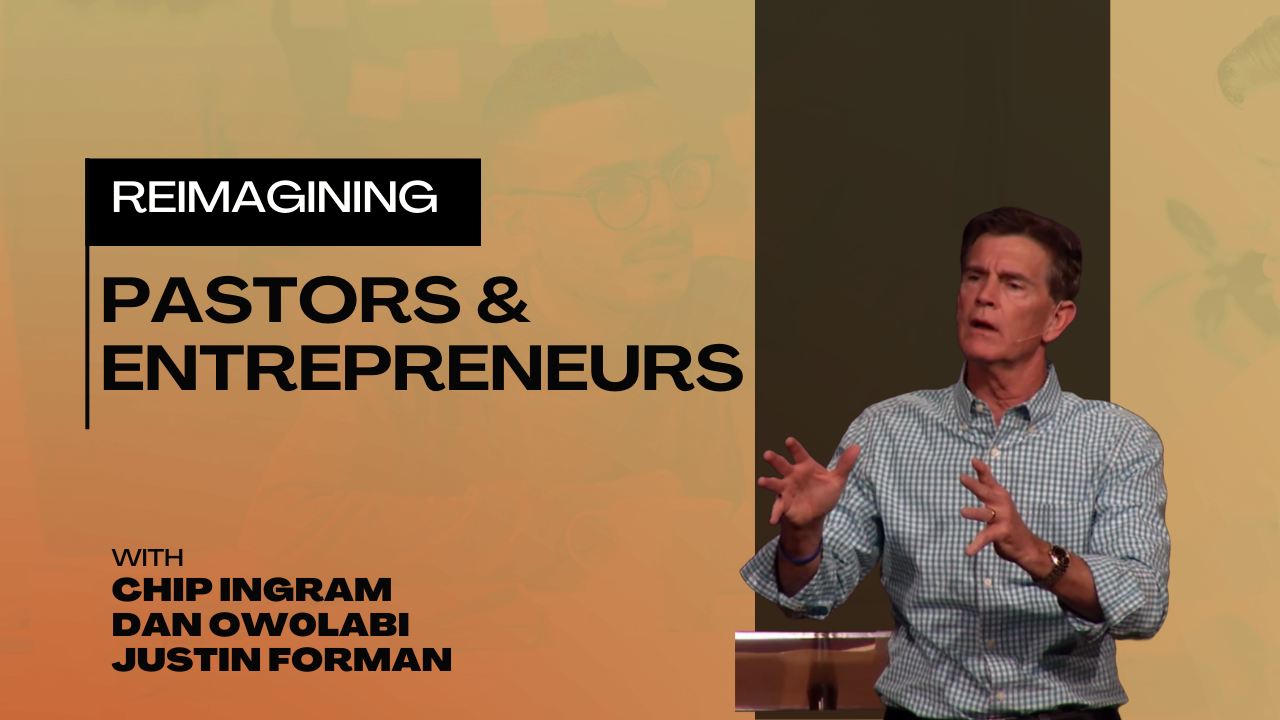
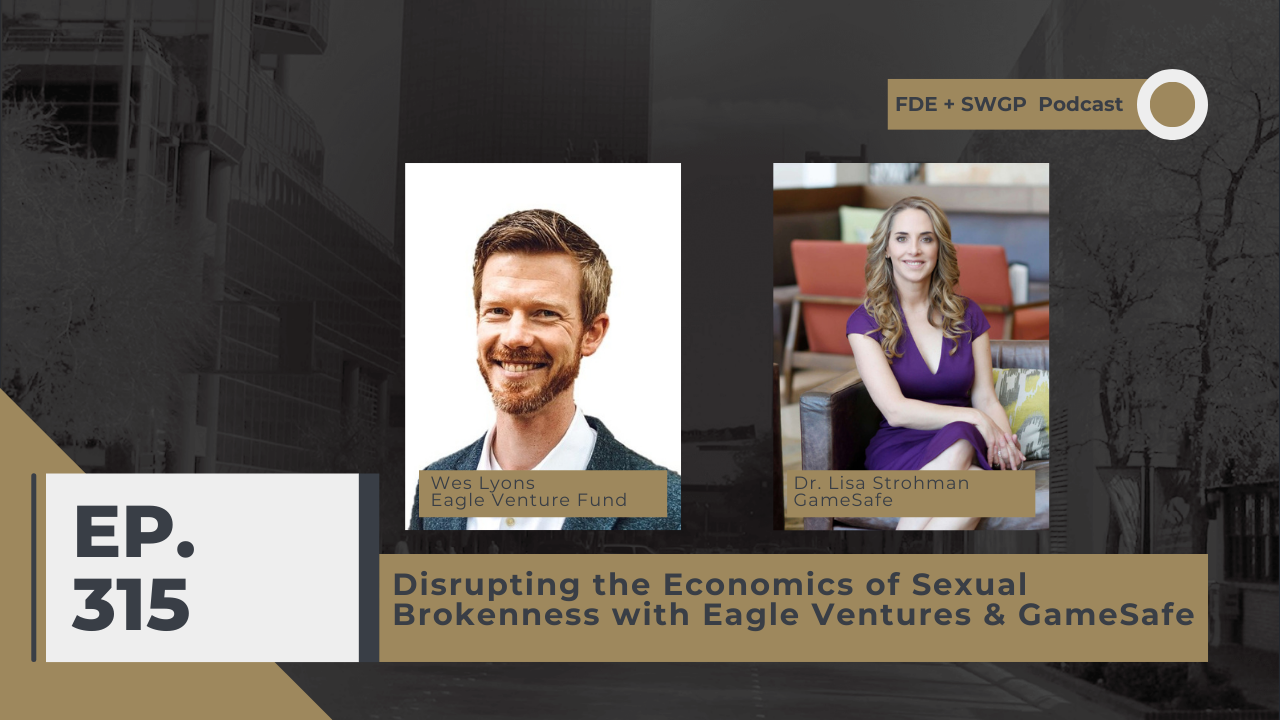
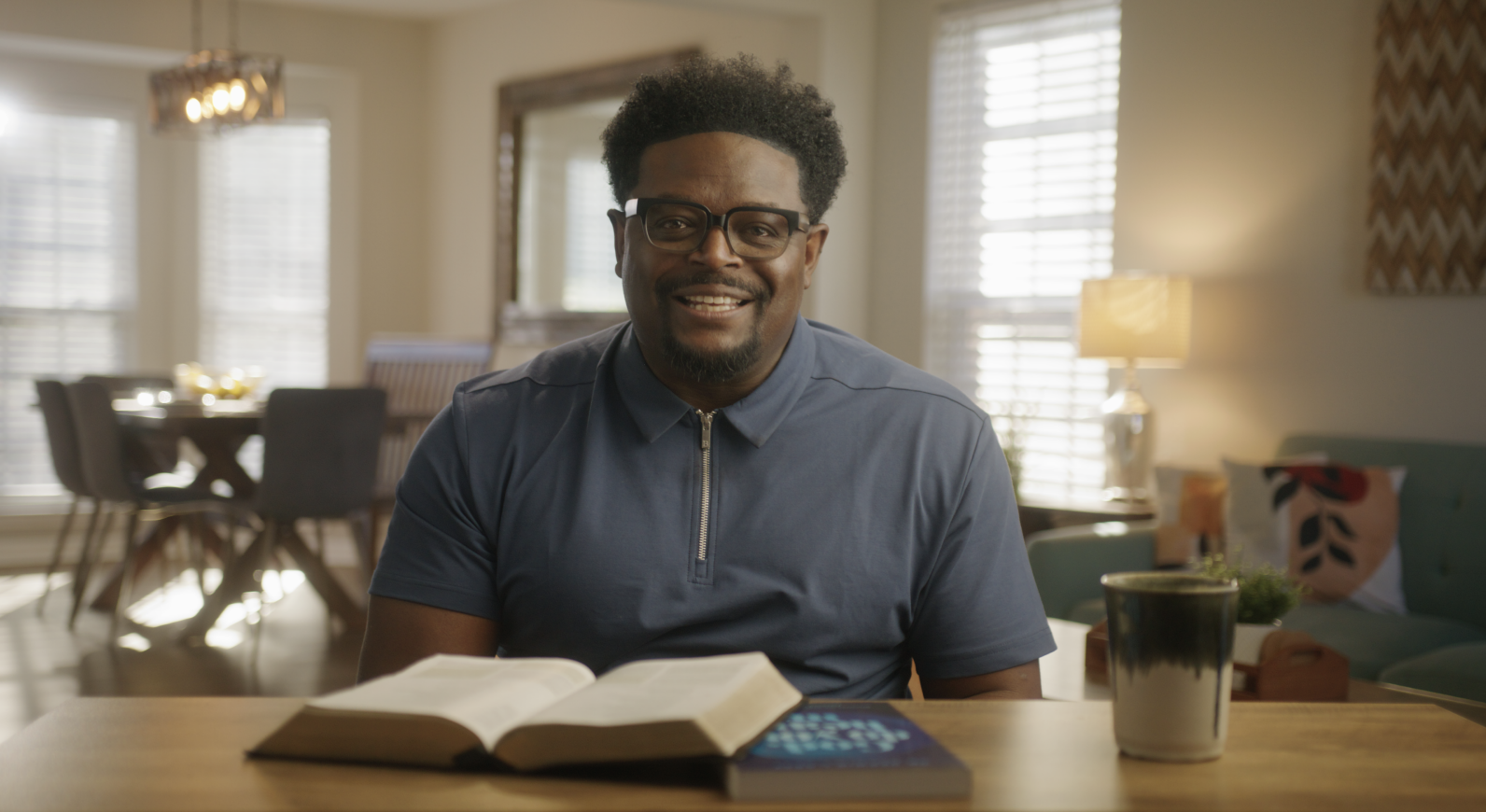

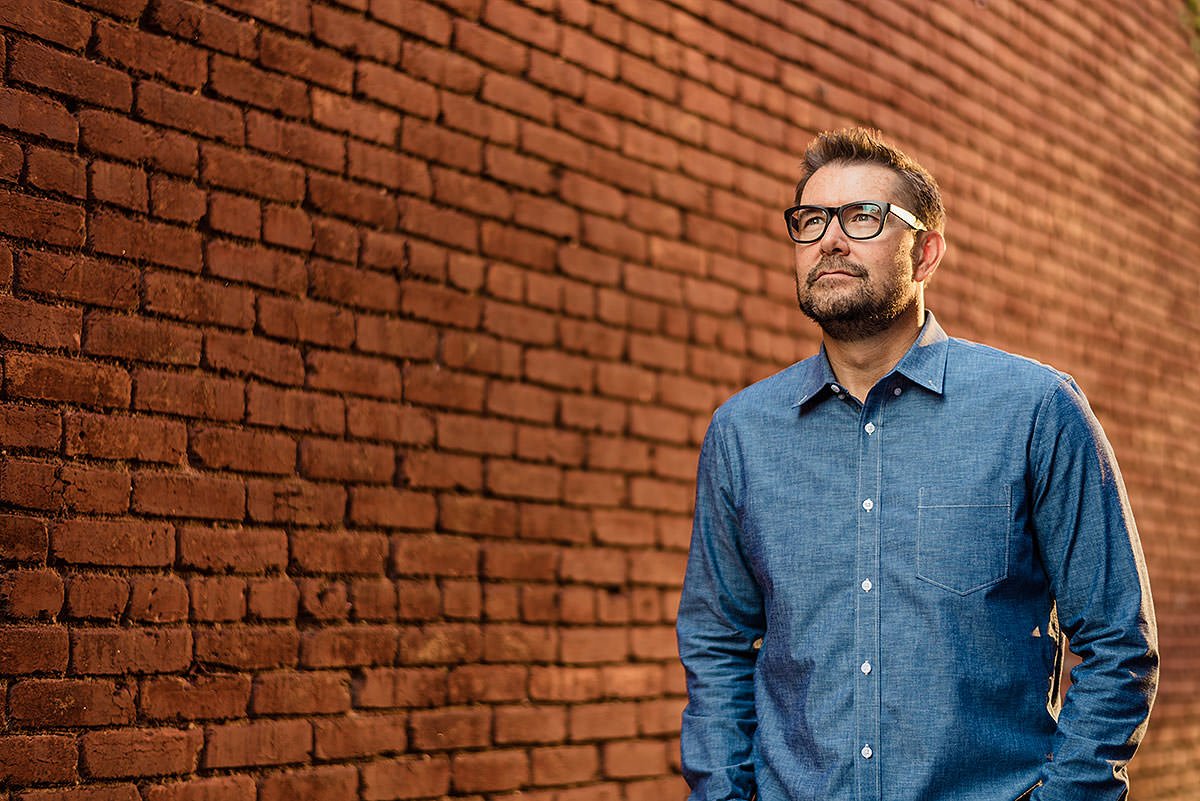
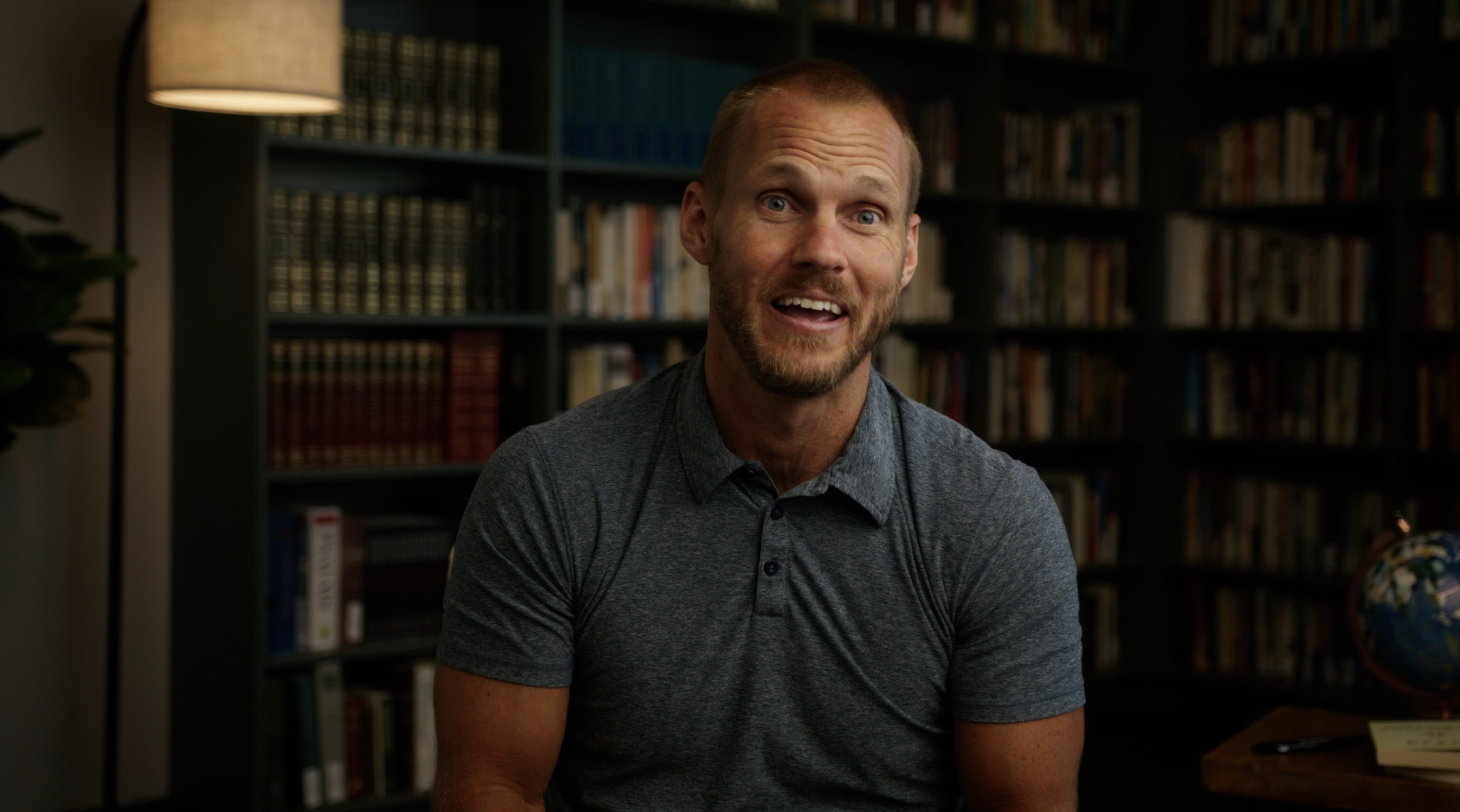
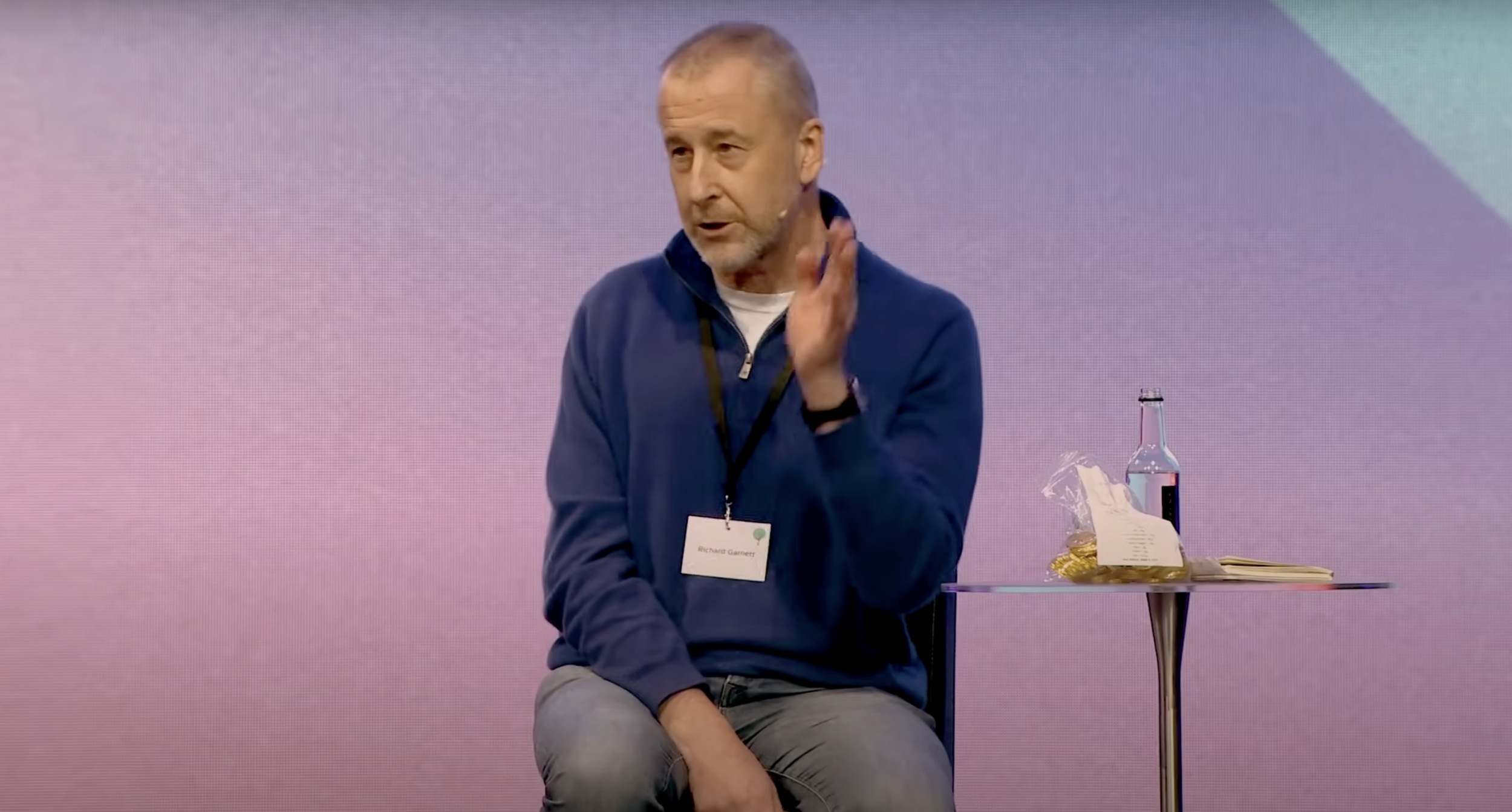

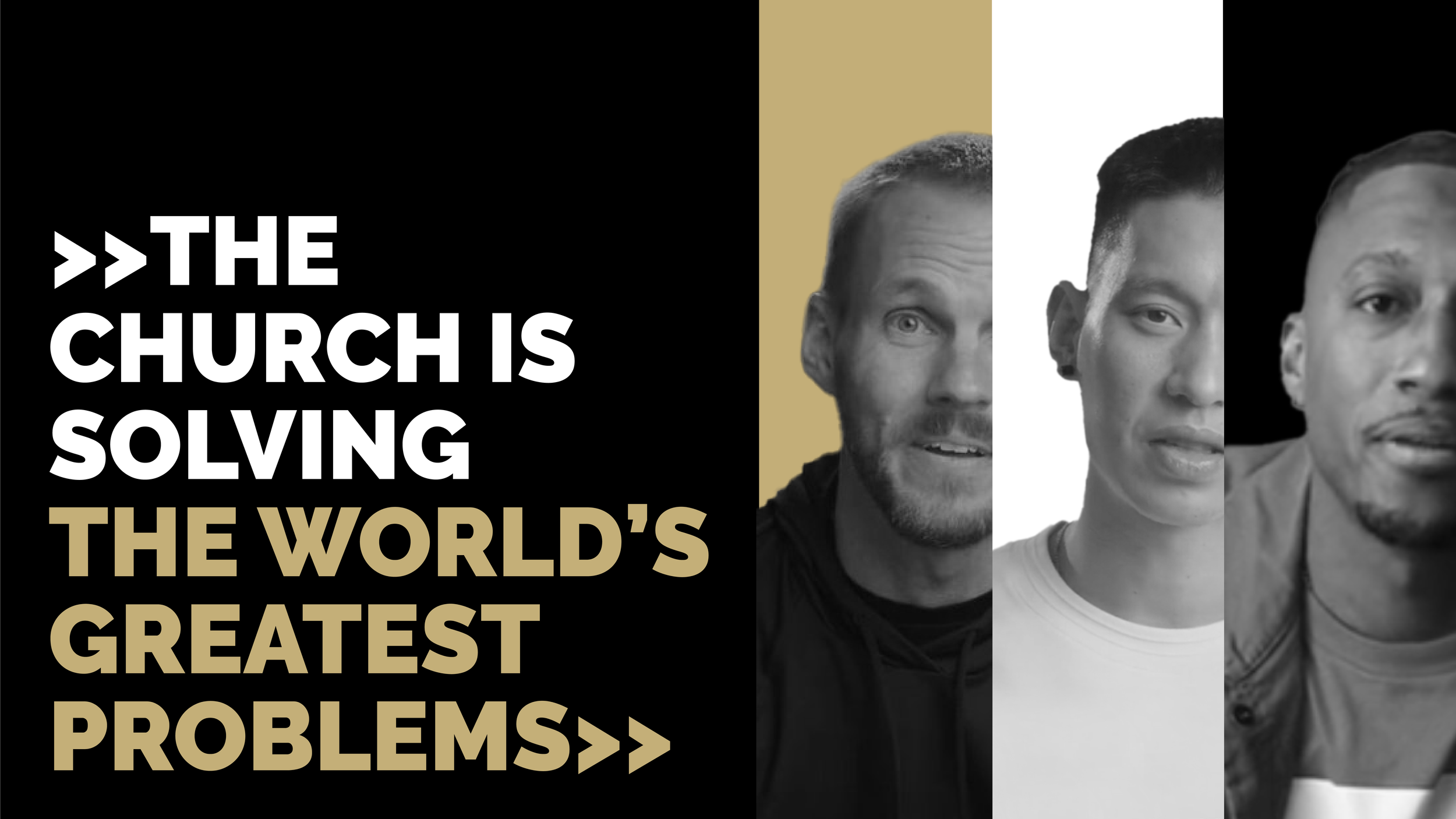
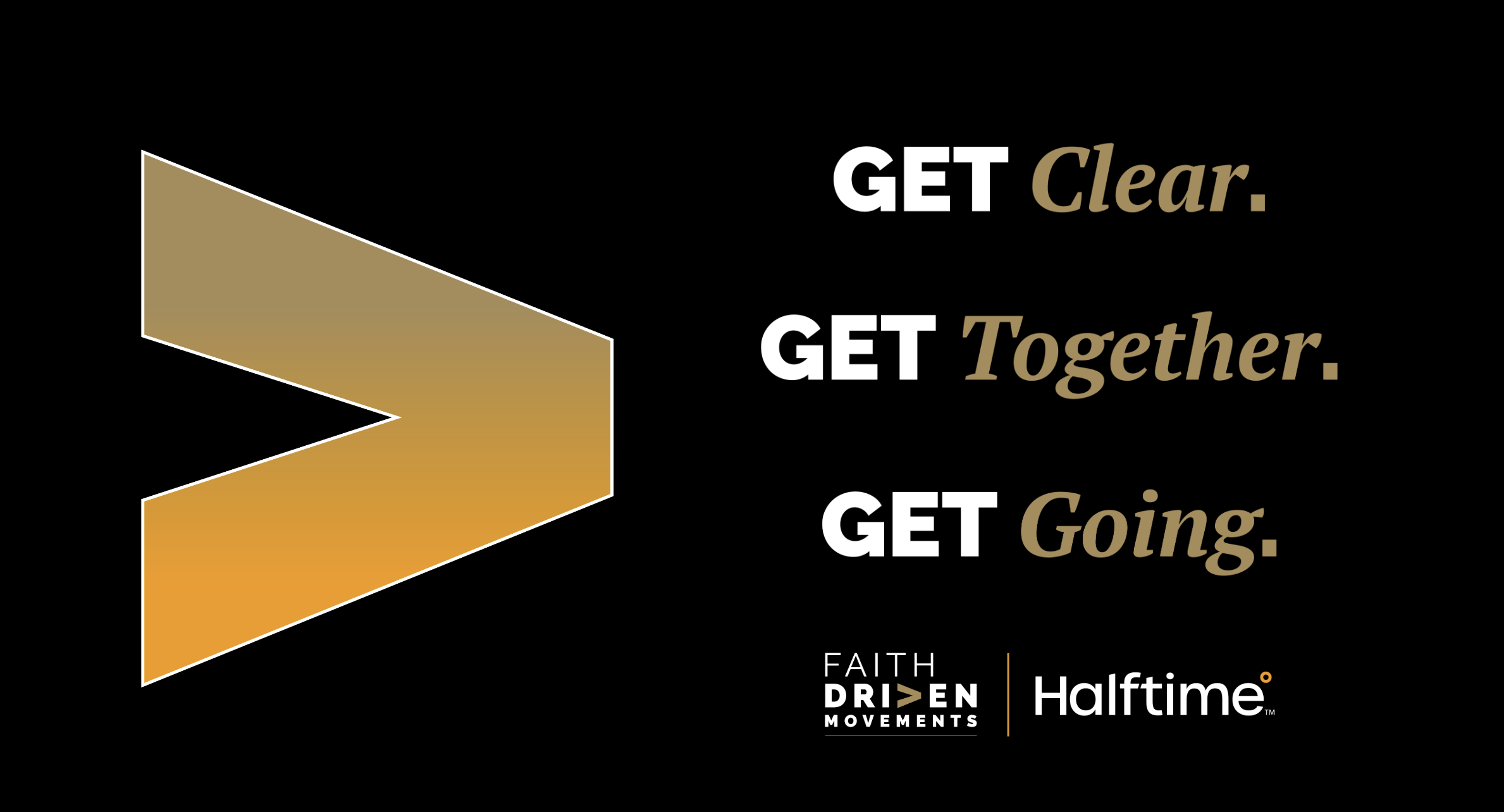
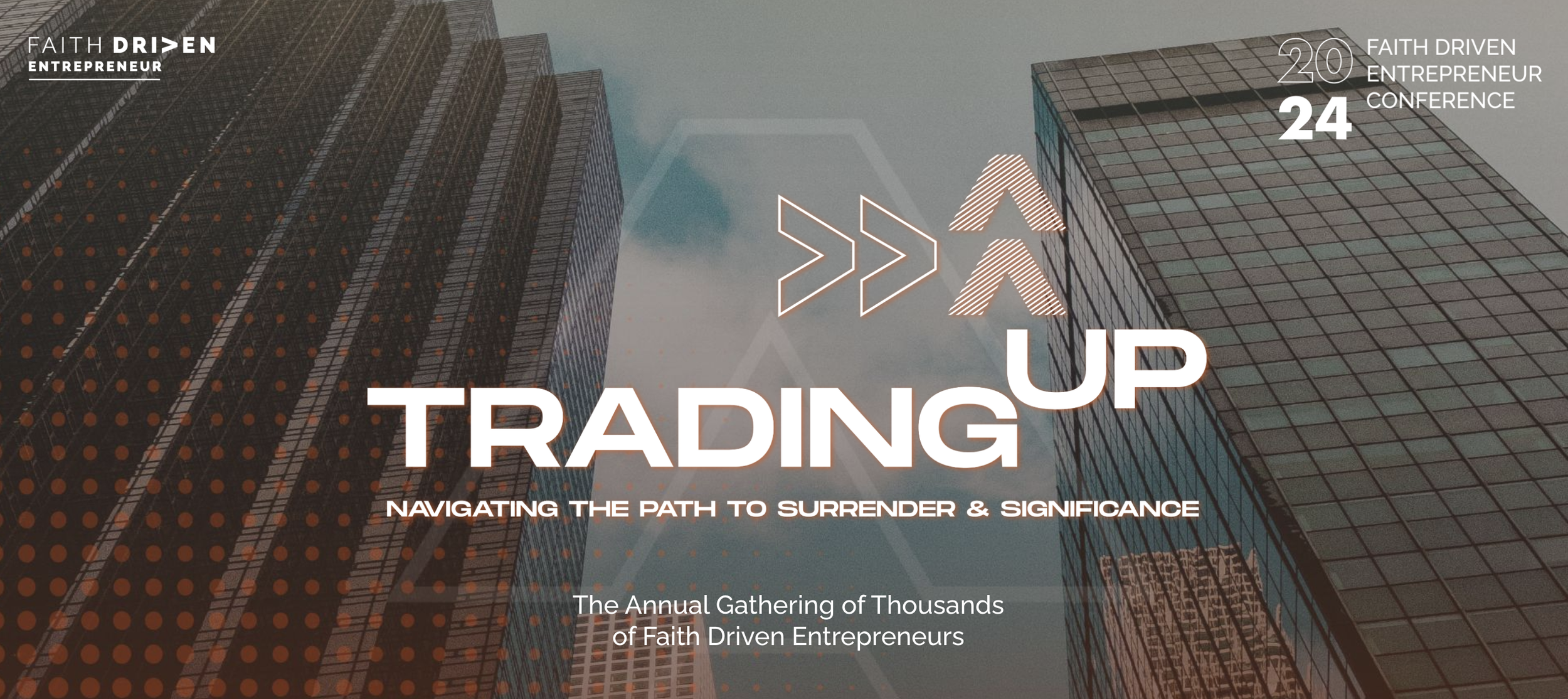
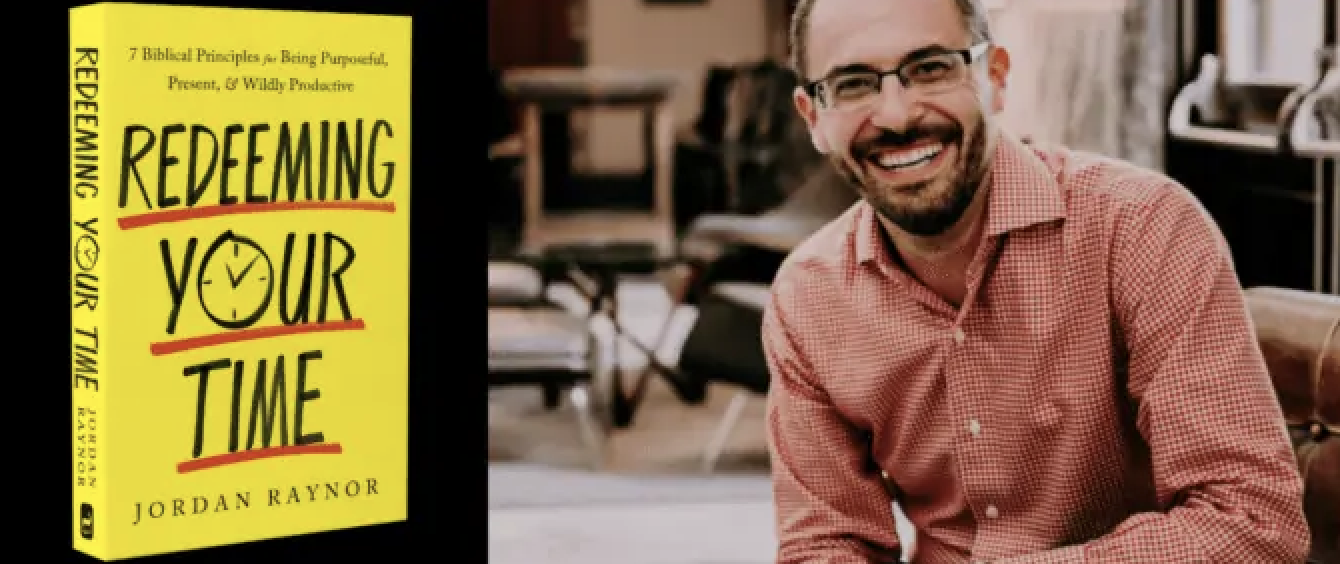
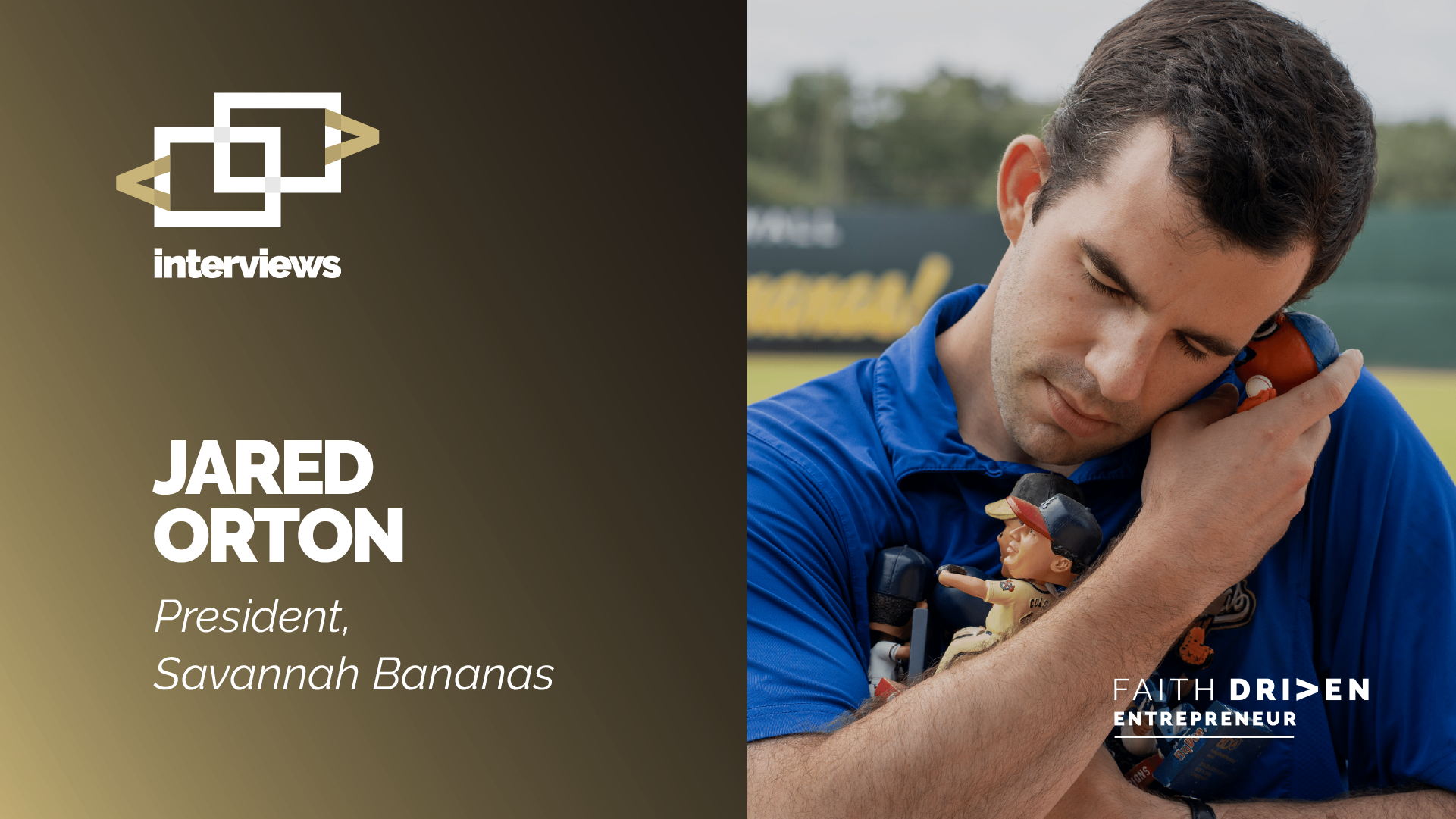
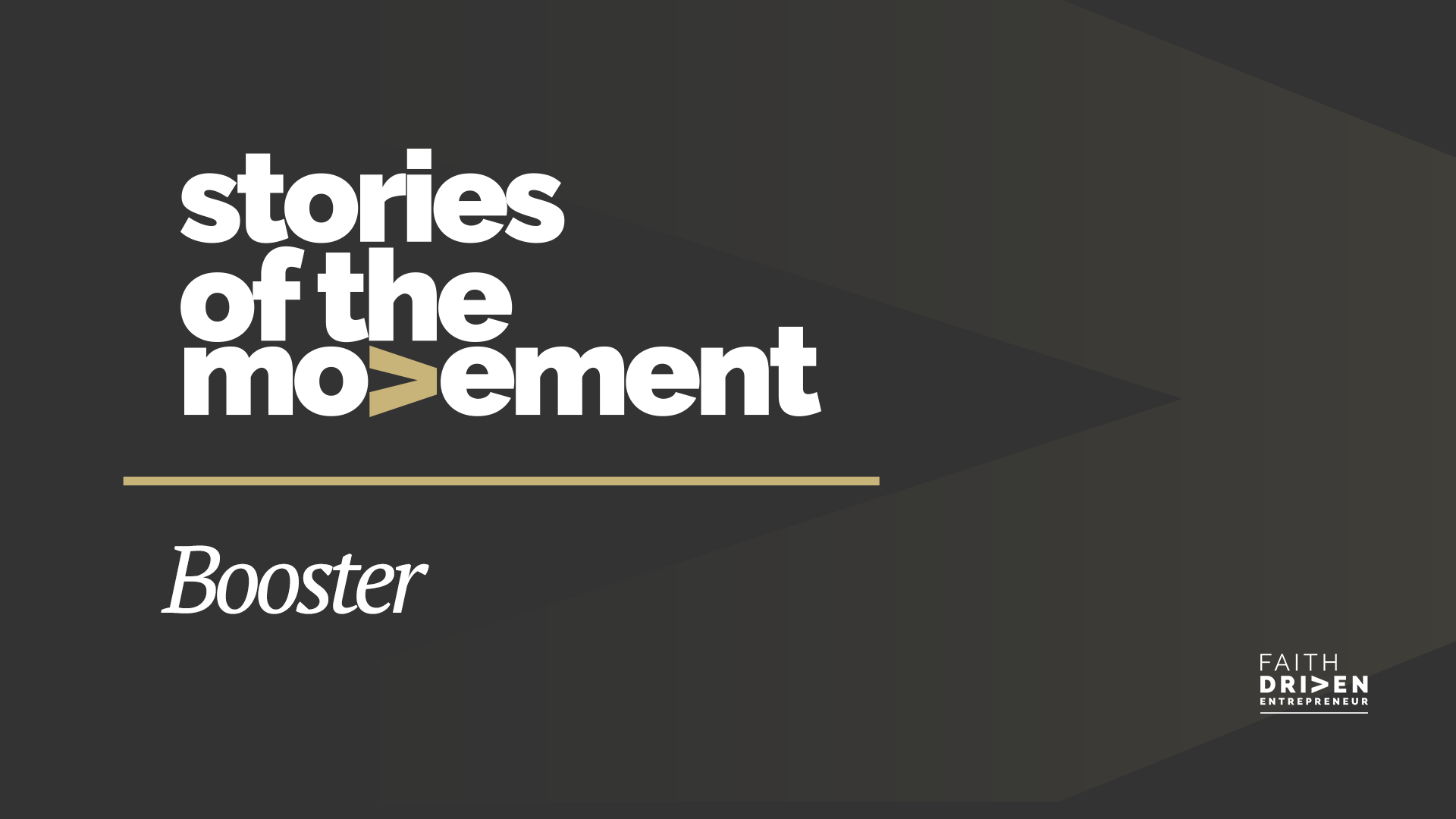



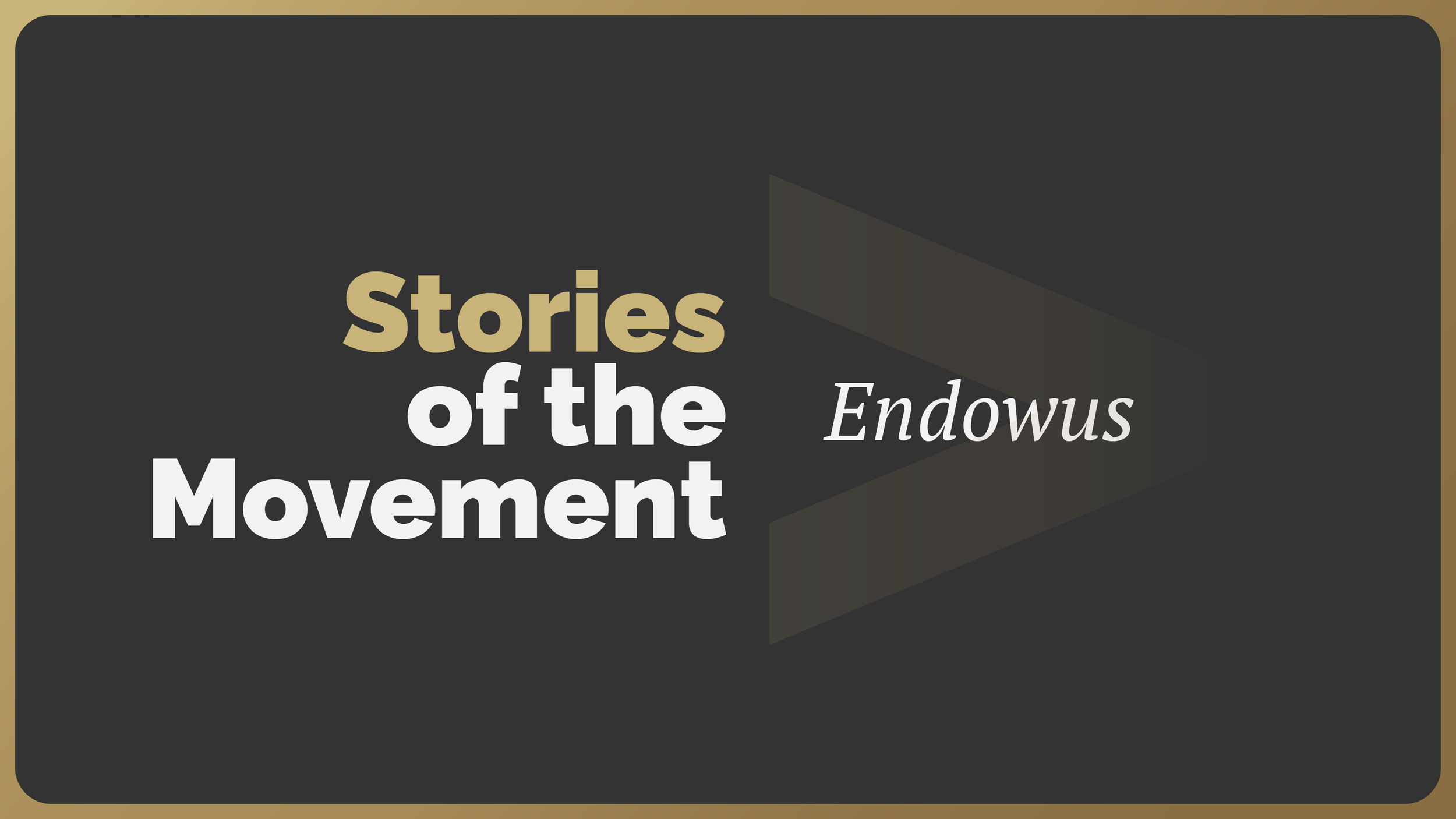

Follow the podcast